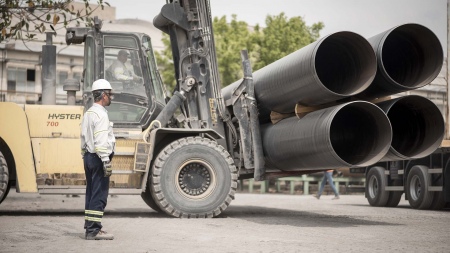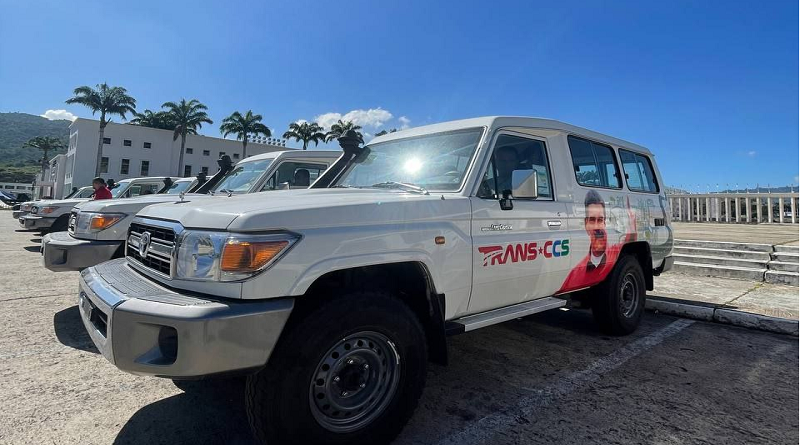The company Energía Argentina began this week with the transfer of the first pipes, made by the Tenaris-Siat plant, destined for the different work fronts where the Presidente Néstor Kirchner (PNK) gas pipeline is being built.
These are the first batches of 36-inch-diameter and 12-meter-long welded pipes, out of a total of 48,000 that are already being manufactured at the plant located in the Buenos Aires district of Valentín Alsina, Lanús district.
“These first batches will require about 12,000 truck tripswhich are transferred to the different collection centers arranged in the provinces of Neuquén, Río Negro, La Pampa and Buenos Aires”, they explained in a statement.
The demand for pipes generated from the construction of the gas pipeline “involved the reactivation of the Tenaris-Siat plant, of the Techint Group, which operates at record levels of activity and continuous operation with the creation of 350 jobs,” they highlighted.

This involved the investment of more than US$ 6 million in the plant to optimize production lines, improve material handling, and other tools required to ensure the quality of the final product.
Weeks ago, Energía Argentina had already started the transfer of 7,444 pipes of 36 and 30 inchesdestined for the Mercedes-Cardales gas pipeline and the Neuba II loop, both complementary works to the PNK gas pipeline.
These tubes correspond to expansions of trunk gas pipelines that were paralyzed during 2015 and 2019 and they were found abandoned in warehouses in Campana and Ensenada.

The work
The gas pipeline is a work that will increase the production of Vaca Muerta -the second unconventional gas reserve in the world-, expand the gas transport capacity and make it reach the consumption centers.
The first section of the gas pipeline It will have an extension of 573 kilometersand will link the Neuquén town of Treatyén to Salliqueló in the province of Buenos Aires, crossing Río Negro and La Pampa.
This project, which is in charge of the public company Energía Argentina, It will allow saving more than US$ 2,900 million a year between substitution of fuel imports and reduction of subsidieswill increase the availability of gas at competitive prices for industry, businesses and homes.
The works in progress will generate some 10,000 direct jobs and another 40,000 indirect jobs at peak construction, between the construction of the work and the increased gas production in Vaca Muerta.


















